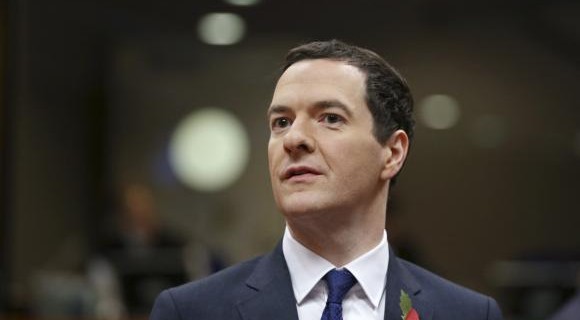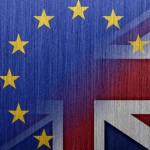George Osborne has pledged to cut corporation tax to 15% from 20% rate

George Osborne has pledged to cut corporation tax to encourage businesses to continue investing in the UK following the EU referendum vote.
In an interview with the Financial Times, the chancellor said he would reduce the rate to below 15% – some 5% lower than its current 20% rate.
That would give the UK the lowest corporation tax of any major economy.
But former World Trade Organization chief Pascal Lamy said Mr Osborne had to consider what the EU would think.
He told the BBC the chancellor’s plan would be seen as in effect the start of Brexit negotiations, and starting with tax was not the right way to go about it.
“The UK is already activating one of the weapons in this negotiation, which is tax dumping, tax competition. I can understand why he [Mr Osborne] does that, because obviously investors are flowing out from the UK, and he wants to provide them with some sort of premium that would make them think twice before they leave the United Kingdom.
“He has to think about the impact of this on the continent. This will be seen on the continent as the start of the negotiation.
“And I’m quite convinced that at the end of the day, if you want a proper balanced win-win relationship in the future, starting with tax competition is not the right way psychologically to prepare this negotiation.”
‘Open for business’
Mr Osborne said the cut was part of his plans to build a “super-competitive economy” with low tax rates.
A Treasury spokesperson confirmed the Financial Times’s story was correct but said they did not know when the cut would happen.
In March, the chancellor said corporation tax would fall to 17% by 2020.
Mr Osborne told the FT it was important for “Britain to “get on with it” to prove to investors that the country was still “open for business”.
Shadow chancellor John McDonnell said the proposal was “counter-productive”. He told the BBC the tax cut would not create the business investment that the UK needed.
He said it was “not constructive” to be “offering up Britain as a tax haven” to Europe and warned this could hit taxpayers.
Mr McDonnell accused the chancellor of being “chaotic” by bringing in “panic tax cuts” and instead called for a “steady strategy”. He also warned that it was not the right way to open negotiations to get the best deal in Europe.
“I don’t think it sends the right message to those countries that wish to establish a co-operative relationship with us in the future, so that we get some of the benefits we had in the EU, even though we’re outside of it,” he said.
Analysis: Theo Leggett, BBC business reporter
Before the referendum, George Osborne said that a vote to leave the EU would force him to introduce billions of pounds worth of tax increases and spending cuts in order to repair damage to the public finances.
It is now clear that his real strategy is very different.
The proposed cut to corporation tax, which would give the UK one of the lowest rates of any major economy, is designed to help the country attract new investment and court businesses which might otherwise have been put off by the uncertainty surrounding the country’s relationship with the EU.
Mr Osborne’s announcement comes amid reports that the Bank of England could this week lower the amount of capital banks have to keep aside as a safety net in case of unexpected risks.
On Tuesday, the Bank publishes the outcome of its bi-annual Financial Policy Committee meeting which looks at risks to the UK’s financial stability.
Mr Carney said last week that the Bank would take “any further actions it deems appropriate to support financial stability”.
One option could be to reduce the amount of capital banks are required to hold to help stimulate the economy.
‘Signs of shock’
Mr Osborne has already abandoned his long-held target to restore government finances to a surplus by 2020 amid fears the uncertainty caused by the Leave vote could hold back the economy.
The chancellor said the economy was showing “clear signs” of shock following the vote to leave the European Union.
“How we respond will determine the impact on jobs and growth,” he said at the time.
Economists have also warned about the impact of the Leave vote.
“Having voted for Brexit last week, the economy is clearly going to go into a down swing, that might be a full-blown recession, that might just be very very low growth,” Paul Johnson, the director of the Institute for Fiscal Studies, said last week.
Source: BBC





























